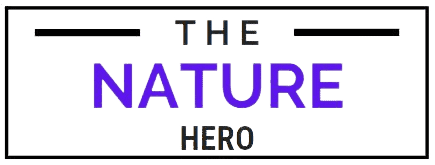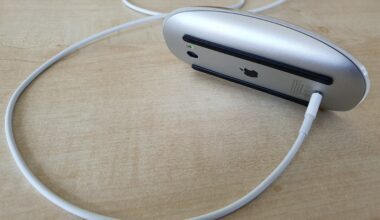Do you struggle to work effectively on a small computer monitor, but your desk space and budget are too small to fit a big screen?
Many workers are in this dilemma, so you are not the only one!
The key is to find a perfectly sized computer monitor that boosts productivity without taking up significant desk space.
An ultra-wide monitor may look impressive, but it will consume significant desk space and money, while a small monitor compromises your productivity.
Please find the best monitor size for your work and whether it fits your budget.
Table of Contents Show
Does Computer Monitor Size Matter?
More and more people are working from home lately; therefore, choosing a monitor that optimizes your working experience is imperative.
Many remote workers prefer working from their laptops, which not only limits their screen landscape but also affects their productivity.
The same applies to office-goers needing an appropriately sized monitor to complete their work.
Therefore, you should consider upgrading to an appropriately sized external monitor or adding multiple screens.
Here are a few reasons why a monitor’s size would matter.
| Factor | Specification |
|---|---|
| Optimal Performance | 1. Appropriate screen space helps your focus better. 2. It ensures ergonomics (efficiency). 3. It decreases the risk of downtime. |
| Better Visibility | 1. Increased resolution ensures better visibility. 2. It reduces strain on the eyes by making the image more defined. |
| Optimized Resolution | 1. Increased resolution means fewer flickers. 2. Compatible with high-resolution video and image streaming. |
| Color Quality | 1. High-res monitor offers a dynamic color range of over one billion shades. 2. It offers a better contrast ratio, 1000:1 to 3000:1. |
| Gaming Experience | 1. Engage in gaming when not working. 2. Utilize better color, contrast, and screen space for an elevated gaming experience. |
1. Optimal Performance
Choosing an appropriately sized screen space helps you focus better to complete your work more efficiently.
Moreover, it boosts ergonomics (user efficiency) by optimizing the monitor screen for your work.
Those with correct monitor sizes experience lesser downtime, indicating more productivity.
2. Better Visibility
Choosing a large screen means higher resolution and color quality, ensuring better visibility.
It will help reduce eye strain due to computer vision syndrome by making the image more defined, less blurred, or minor, ensuring a sharper image display.
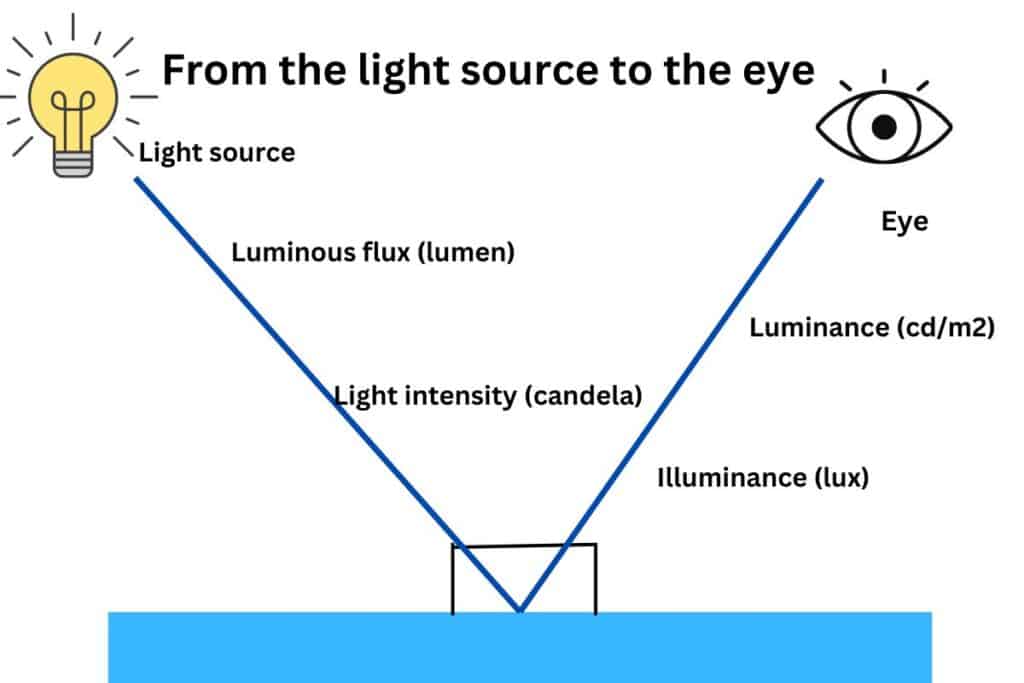
For example, compare a 4K resolution that displays 4,000 pixels with a 1080p resolution that hardly says 1 million pixels.
A sharper image means you can scale up the detail by 100 to 200%, preventing the need to squint your eyes and look at the monitor up close.
Despite saying that, you should take precautions to avoid poor visibility by enabling night-view mode on the screen or following the 20-20-20 rule.
3. Optimized Resolution
Increased resolution wither a higher refresh rate means fewer flickers.
Screen flickers are the major contributor to eye strain and headaches.
Hence, choosing a monitor size with better resolution ensures appropriate video and image streaming.
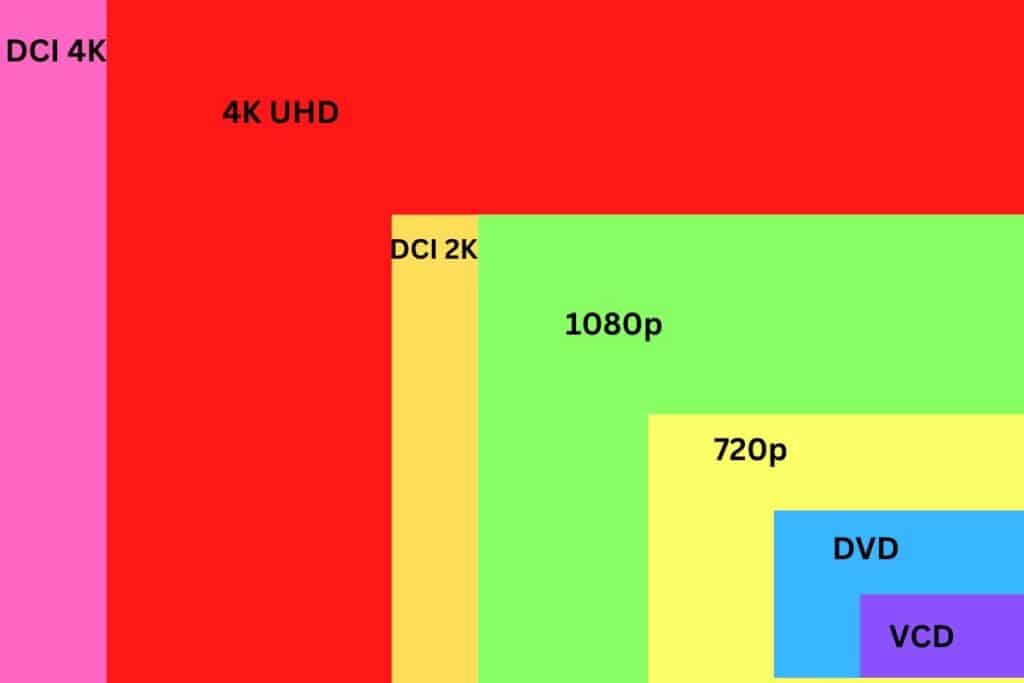
4. Color Quality
Choosing monitors with better color and contrast ensures more defined images.
A high-resolution monitor offers a dynamic color range of over one billion shades, which may benefit image and video editing.
For example, 2k and 4K resolutions may offer a better contrast ratio from 1000:1 to 3000:1 for the best viewing experience.
5. Optimal Gaming Experience
It is undeniable that users often use their office monitors for gaming.
An appropriately sized monitor ensures the best gaming experience, whether competitive or casual.
Moreover, gaming monitors can be used for gaming and work simultaneously.
What Is The Best Monitor Size For Your Office Work?
We highly recommend that users choose 24 to 34 inches big monitors to ensure an optimal working experience.
Some tasks may require a larger screen landscape, which is better fulfilled by a 34 to 49 inches ultra-wide screen.
Here is a guide to help you find the best monitor size for different tasks.
1. Monitor Size For Coding Or Programming
Choosing the best monitor size for programming or coding is essential to ensure you can write thousands of code in the least amount of time.
Experts advise a monitor size ranging from 24 to 49 inches to provide a conducive coding environment.
Coders often use multiple screens to write and test codes to minimize time lag, which may require two or more 24 inches of screens.
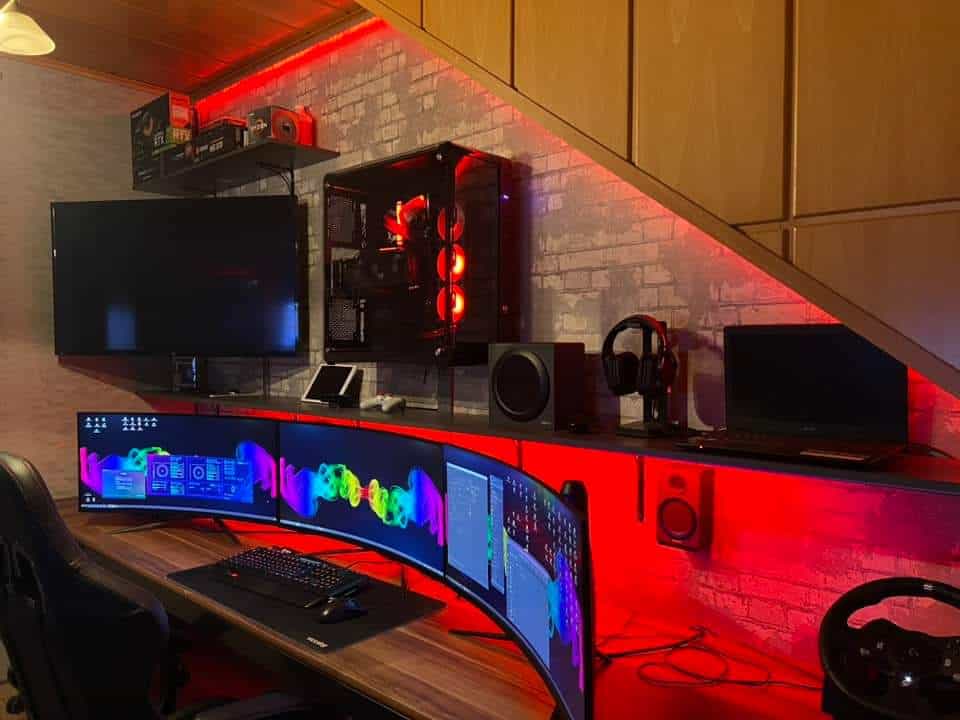
Otherwise, you can merge this experience into one by choosing a widescreen monitor, 34 inches or more, including a vertical monitor, for a better reading experience.
Similarly, it would help if you chose the 1440p or 4K resolution monitor to comprehend even the most miniature texts.
2. Monitor Size For Image And Video Editing
Video and image editing is the most vital work requiring a high-resolution monitor.
For example, editing content in Ultra High Definition(UHD) will require reviewing the work in the native resolution.
Therefore, multiple monitors with UHD sizes ranging from 27 to 32 inches will be more appropriate for editing videos and images.
However, the resolution is not everything. Editing requires better color contrast and color balance.
Hence, choose a 2K, 4K, or 8K resolution monitor with a contrast ratio of 3000:1. Choosing an ultrawide monitor may be beneficial for editing.
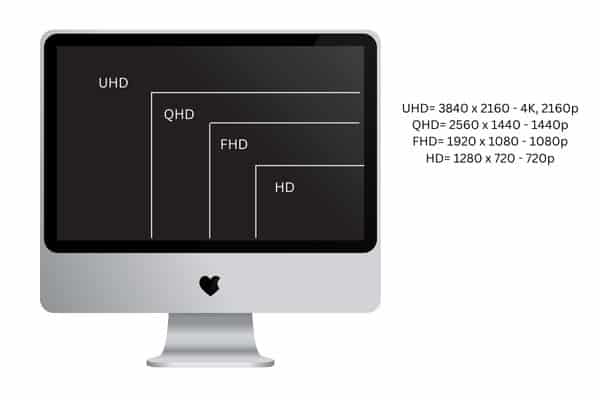
The typical monitor offers an aspect ratio of 16:9, while ultrawide monitors are 21:9, meaning more workspace.
3. Monitor Size For Gaming
Gaming is one of the most focus-centric tasks that may require staring at the screen for countless hours.
Moreover, it requires a larger screen landscape to facilitate a better gaming experience.
First-person shooter (FPS) gaming, such as Counterstrike and Halo, requires a wider screen to enjoy a better peripheral view.
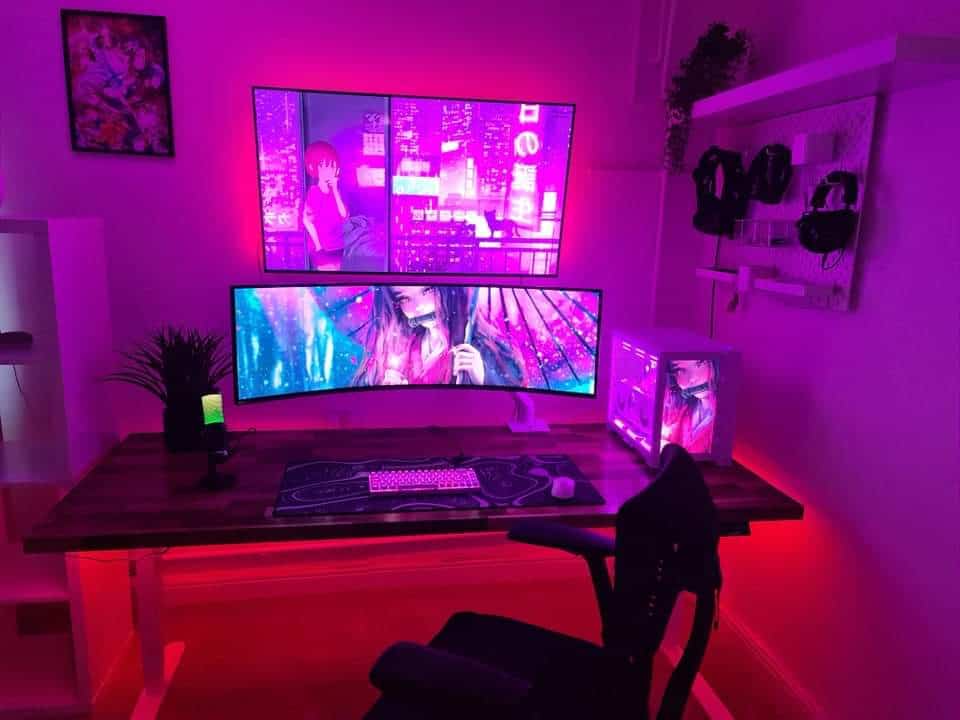
Therefore, choose multiple 27 inches monitors or install a single 40 inches or more ultra-wide monitor.
Similarly, the monitor should boast a high-resolution image with better color contrast so you can grasp each detail in the game.
Here are some common names for ultrawide monitors according to the resolution.
| Common Name | Aspect Ratio | Resolution |
|---|---|---|
| WFHD | 64∶27 | 2560×1080 |
| WFHD+ | 12∶5 | 2880×1200 |
| WQHD | 43∶18 | 3440×1440 |
| WQHD+ | 12∶5 | 3840×1600 |
| UW4K | 12∶5 | 4320×1800 |
| UW5K (WUHD) | 64∶27 | 5120×2160 |
| UW5K+ | 12∶5 | 5760×2400 |
| UW6K | 43∶18 | 6880×2880 |
| UW7K | 12∶5 | 7680×3200 |
| UW8K | 12∶5 | 8640×3600 |
| UW10K | 64∶27 | 10240×4320 |
4. Monitor Size For Other Office Work
Office work includes surfing the internet, writing documents, or other administrative tasks, sometimes for hours.
Therefore, a monitor size with a better viewing experience reduces eye strain.
Choose monitor sizes ranging from 22 to 27 inches with a high-resolution display for an unhandled viewing experience.
A 24 inches monitor will be sufficient for most regular tasks that make a balance between price and size.
Moreover, you can also consider getting dual monitors of either 24 or 27 inches for better productivity.
5. Monitor Size For Trading
Trading is another comprehensive activity requiring an appropriate computer monitor size to view all the data simultaneously.
Traders often use multiple small screens stacked together to condense different data and charts within their view.
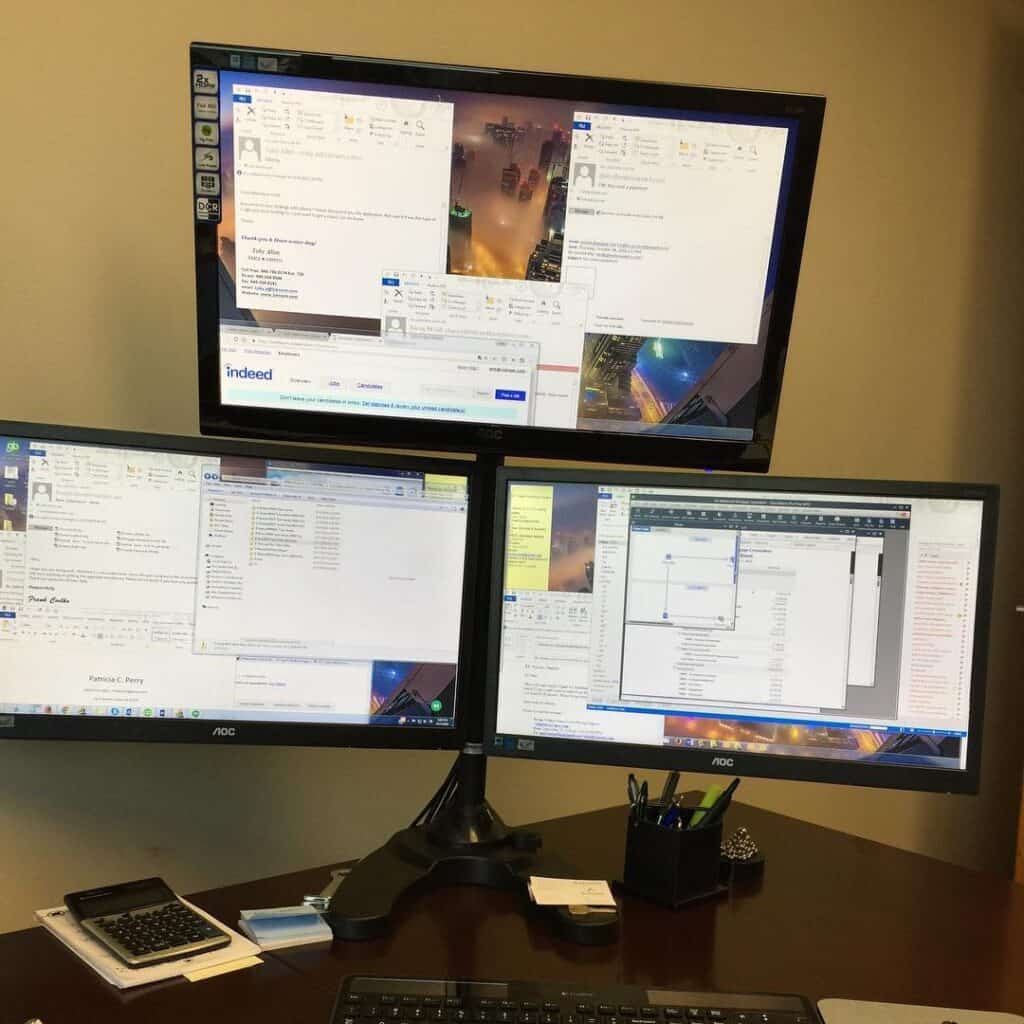
Therefore, choosing multiple wide monitors will unnecessarily create longer eye-travel distances.
Traders should choose a screen size between 24 to 28 inches that provides better visibility and resolution.
Otherwise, use a single ultra-wide monitor, about 43 inches, to stack and view all the data in a single monitor.
Best Monitor Sizes According To Resolution
Here is a table outlining different monitor sizes appropriate for varying screen resolutions.
| Display | Resolution | Monitor Size |
|---|---|---|
| 720p | 1280 x 720 | 24" or lower |
| 1080p | 1920 x 1080 | 24" to 27" |
| 1440p (2K) | 2560 x 1440 | 27" or more |
| 4K | 3840 x 2160 | 27" or more |
| Ultra-Wide | 2560 x 1080, 3440 x 1440 or higher | 40" or more |
How Big Monitor Is Big Enough?
Some users may find a 24 inches monitor too big for their line of work, while others may find it too small.
Therefore, it depends entirely on your situation, preference, and work.
It tends to be the most comfortable size for regular desktops, where many point out that anything above 27 inches is too significant for viewing.
Viewing a large monitor up close may risk eye strain and poor vision, requiring keeping it farther.
As a regular user, it is up to you to decide whether a 24 inches monitor will suffice.
However, gamers and coders may find a 24 inches monitor too limited because they need a larger screen landscape for gaming.
Here is the comparison between 24 inches Vs 27 inches Vs 32 inches monitor.
| 24-inches | 27-inches | 32-inches or more |
|---|---|---|
| Aspect Ratio of 16:10 | Aspect Ratio of 16:9 | Aspect Ratio of 21:9 or above |
| Perfect for all kinds of works, including regular office work | Appropriate for gaming and editing | Perfect for gaming, editing, and video streaming |
| It offers more space and flexibility | Offers flexibility for desk with large work space | It may compromise space and flexibility |
| The monitor is not appropriate for larger screen resolution, color quality, and pixels | The monitor size is appropriate for larger screen resolution, color quality, and pixels | It optimizes and enhances screen resolution, color quality, and pixels |
Therefore, no monitor size will be too big for them and slightly expensive.
Follow the correct monitor size section above to decide the right monitor size.
Best Monitors For Office Work In 2026
Here are a few recommendations for the best monitors you can use for office work.
| Monitor | Specification | Image |
|---|---|---|
| ASUS ProArt PA248QV | A 24” LED monitor with an effective blue-light filter with anti-glare, Tilt Pivot Swivel, and Height Adjustable with a 16:10 aspect ratio for different tasks. | 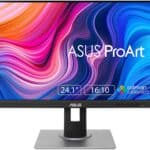 |
| Samsung SH650 | A 27” FHD monitor with 1080p resolution and 16:9 aspect ratio, VESA compatible with USB hub and tilt, swivel, and pivot adjustable. | 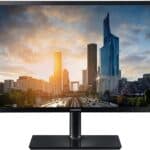 |
| LG 27UD58P-B | A 27” 4K monitor with UHD resolution (2160p) and IPS panel, excellent for both working and gaming. |  |
| ACER XFA240 | A 24” gaming G-sync monitor with 1080p resolution with height, pivot, and tilt adjustment with anti-glare technology. | 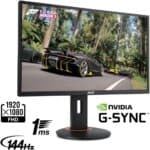 |
| SAMSUNG CJ890 Ultra-wide Monitor | The 49” ultra-wide screen boasts 3840 x 1080 QHD with a 144Hz refresh rate perfect for gaming and editing. | 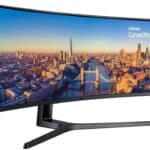 |
| MSI Optix MAG342CQR | 21:9 ultra-wide monitor offers a 3440 x 1440 display at 144Hz, perfect for gaming and editing. | 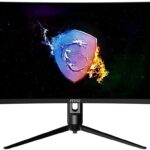 |
Conclusion
Be wary about your need and preference before choosing the correct-sized monitor.
Small monitors are ideal for small desks and home offices, while large monitors are best chosen for heavy-duty work like editing and gaming.
With so many options in the market, choosing the correct screen size worth your money becomes essential.
Whatever you choose, ensure it meets the screen resolution, color ratio, and refresh rate to make the work experience even more friendly.
